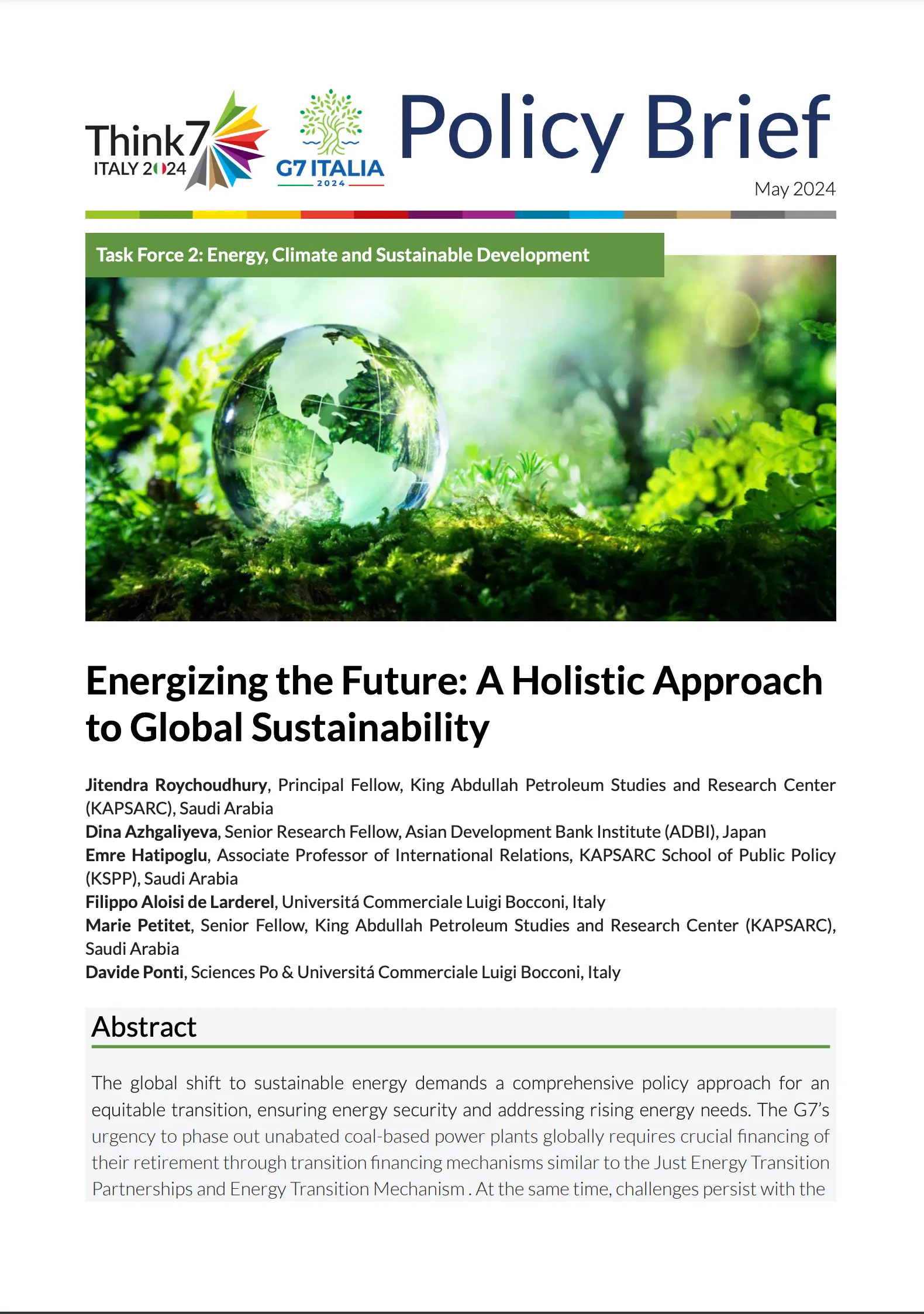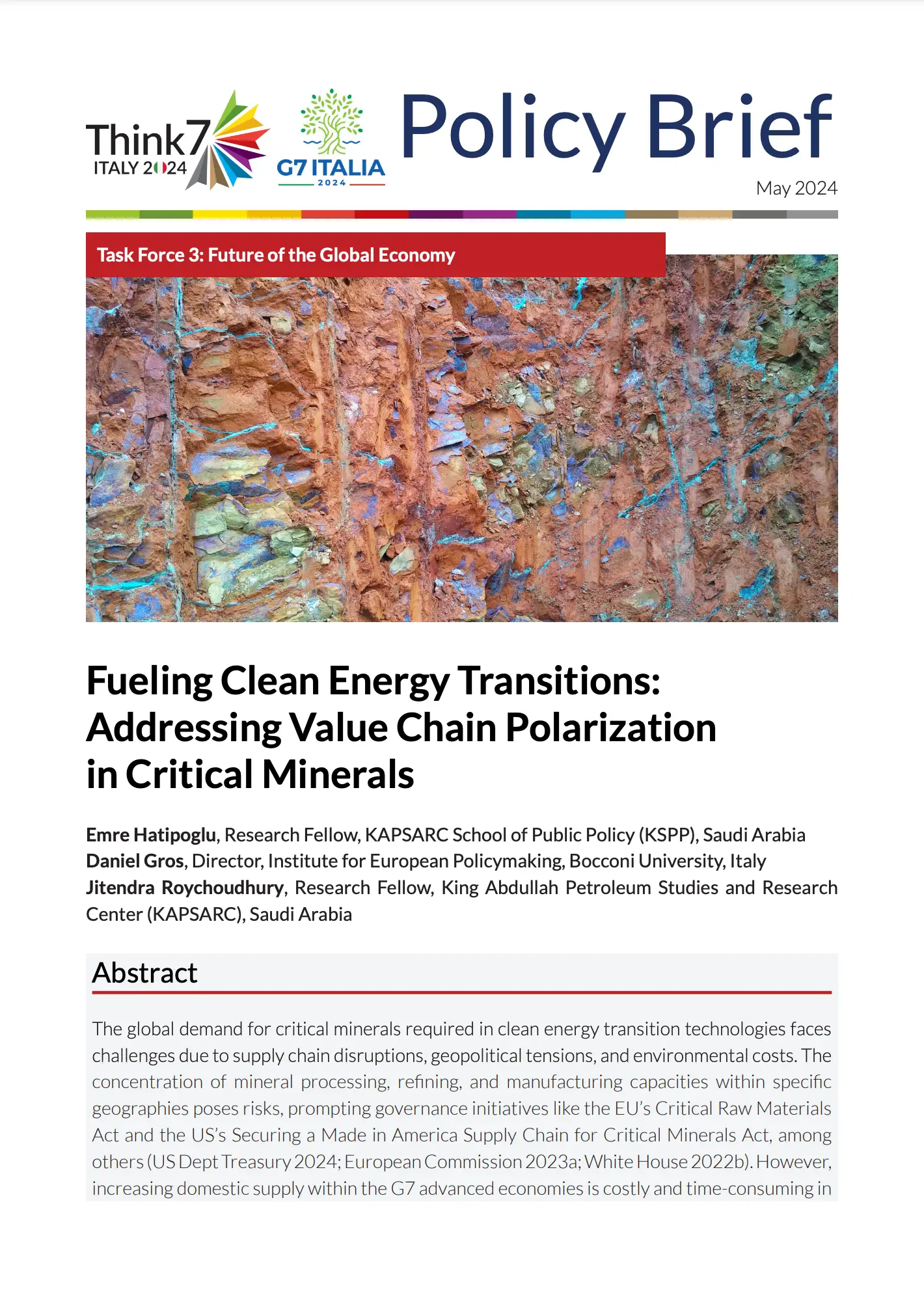The development of renewable energy is often treated as a purely positive outcome for the world, without consideration of the challenges that come with implementation at scale, which will inevitably follow with the process of a global energy transition. Studies on the political process of the transition to a world of renewables are scarce. This article provides a review on the geopolitical, institutional, and technological aspects of the development of renewable energy sources, including transportation and delivery of energy across national borders. At scale internationally, renewable energy will present many of the same issues as other mature sources of energy. Security, export interdependence, and the availability of source materials will all become increasingly important concerns.

Research Fellow
Emre Hatipoglu is a fellow in the Oil and Gas program and leads the research project Energy Markets and Geopolitics.…
Emre Hatipoglu is a fellow in the Oil and Gas program and leads the research project Energy Markets and Geopolitics. In this project, Dr. Hatipoglu and his colleagues assess how political events (e.g., international conflict, economic sanctions, international treaties) and global energy markets interact. Prior to KAPSARC, Dr. Hatipoglu was associate professor at the Faculty of Arts and Social Sciences at Sabanci University in Istanbul and a a visiting Fulbrighter during the 2017-2018 academic year at Columbia University. He also served on the advisory board of Sakip Sabanci Center for Turkish Studies at Columbia University between 2016-2018. Dr. Hatipoglu’s work has been published in various scientific journals, such as the Journal of Politics, Energy Research and Social Science, Energy Reports, Foreign Policy Analysis, the Journal of Commodity Markets, and Defence and Peace Economics, among others. He is the editor-in-chief of the journal Energy Transitions, and serves on the editorial board of the International Studies Review.
Expertise
- Geopolitics
- Economic Sanctions and International Politics of Energy Trade
Publications See all Emre Hatipoglu’s publications

Energizing the Future: A Holistic Approach to Global Sustainability
The development of renewable energy is often treated as a purely positive outcome for the…
2nd June 2024
Fueling Clean Energy Transitions: Addressing Value Chain Polarization in Critical Minerals
The development of renewable energy is often treated as a purely positive outcome for the…
29th May 2024

